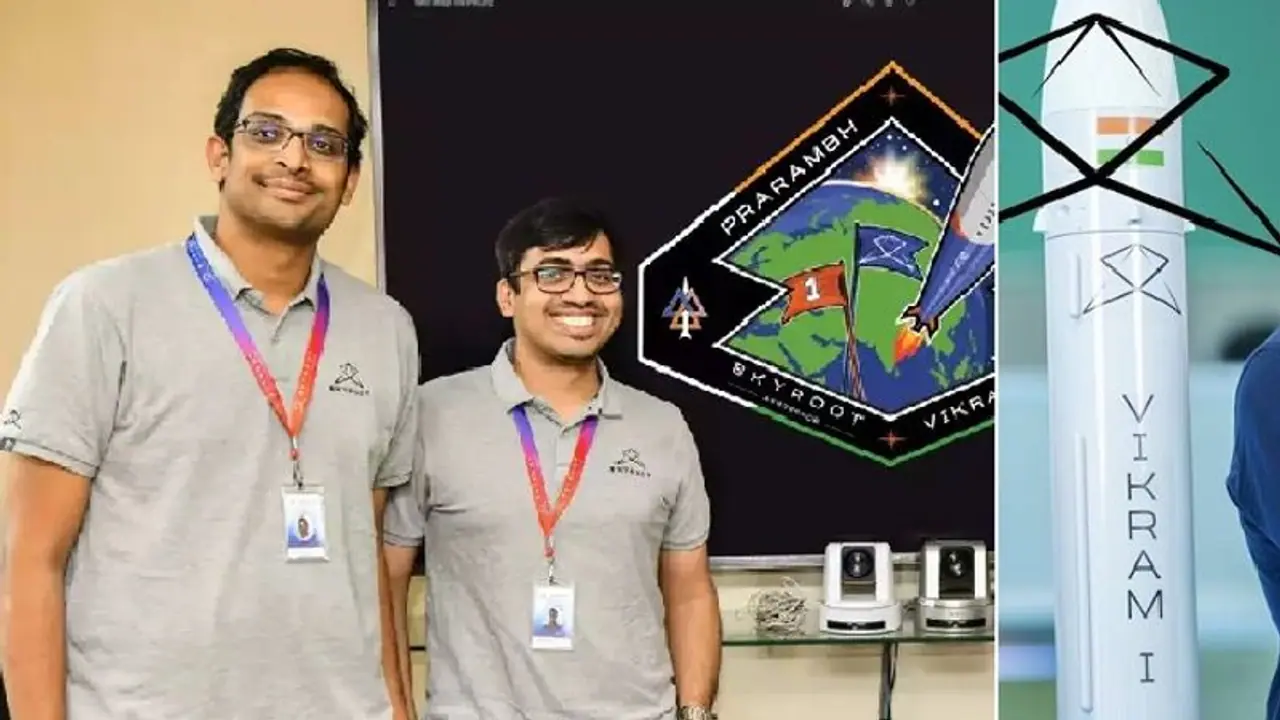Skyroot Aerospace, a Hyderabad-based space technology startup, is at the forefront of India’s burgeoning private space industry. Founded in 2018 by Pawan Kumar Chandana and Naga Bharath Daka, former scientists at ISRO (Indian Space Research Organization), Skyroot aims to revolutionize space travel by making it more affordable, efficient, and accessible to both governmental and commercial clients.
The founders of Skyroot Aerospace aimed to democratize space access. The company concentrates on the rapid assembly and launch of small satellite launch vehicles (SSLVs). With the growing demand for satellite launches, particularly for small and nano-satellites used in communication, weather forecasting, and data analytics, Skyroot's technology is tailored to address this need.
The company's core product line revolves around the Vikram series of rockets, named after Dr. Vikram Sarabhai, the father of India's space program. These launch vehicles are designed to be highly modular, which reduces production time and cost. Skyroot’s technology allows the launch vehicles to be manufactured and assembled in a short span, enhancing their utility for frequent satellite launches.
Achievements and milestones
In November 2022, Skyroot Aerospace achieved a significant milestone by launching Prarambh, India’s first privately developed rocket. The successful suborbital flight marked the company's entry into space with the Vikram-S rocket. This was a watershed moment for India's private space sector, signaling that private companies could develop and deploy advanced space technologies alongside government agencies like ISRO.
Skyroot has designed its Vikram series rockets with modular capabilities. These SSLVs are capable of launching payloads ranging from 225 kg to 720 kg into low Earth orbit (LEO). The modular design not only allows for customization based on the payload size but also enables quick turnaround times for satellite launches—a key competitive advantage in the fast-growing commercial satellite market.
Skyroot has garnered attention not only in India but also internationally. The startup has formed strategic partnerships with global companies and governments looking to leverage cost-effective satellite launch services. This positions Skyroot as a global player in the small satellite launch market.
Challenges and future prospects
Like any space venture, Skyroot Aerospace has faced its share of challenges. Developing rocket technology from scratch, dealing with strict regulatory frameworks, and ensuring cost efficiency in a capital-intensive industry are just a few hurdles. However, the company’s leadership, comprising former ISRO engineers with in-depth experience in rocket science, has been a key driver in overcoming these challenges.
Skyroot’s focus on innovation and affordability aligns with India's broader goals in space exploration, where cost-effectiveness is paramount. India's ambitions to lead in space commercialisation and private space exploration position the company to play a crucial role.
Skyroot Aerospace has attracted significant interest from investors. In 2021, it raised $51 million in a Series B funding round led by Singapore-based GIC (Government Investment Corporation), marking the largest funding round for any space startup in India at the time. The company is utilising the capital for R&D, scaling up production facilities, and preparing for future launches.
The company’s success has also been bolstered by the Indian government’s efforts to open up space exploration to private enterprises, particularly through ISRO's IN-SPACe initiative, which allows private firms to collaborate with ISRO’s vast infrastructure and expertise.
Skyroot Aerospace is not just a startup; it is a symbol of India’s growing prowess in space technology and innovation. With its focus on making space access affordable and reliable, Skyroot is set to play a pivotal role in the global space economy. As the demand for satellite launches grows, Skyroot's modular, quick-assembly rockets will likely become essential tools for space exploration, communication, and earth observation.
Skyroot Aerospace’s journey from an ambitious startup to a company making its mark in space technology highlights the immense potential of India’s private space sector and its ability to compete on a global scale.
